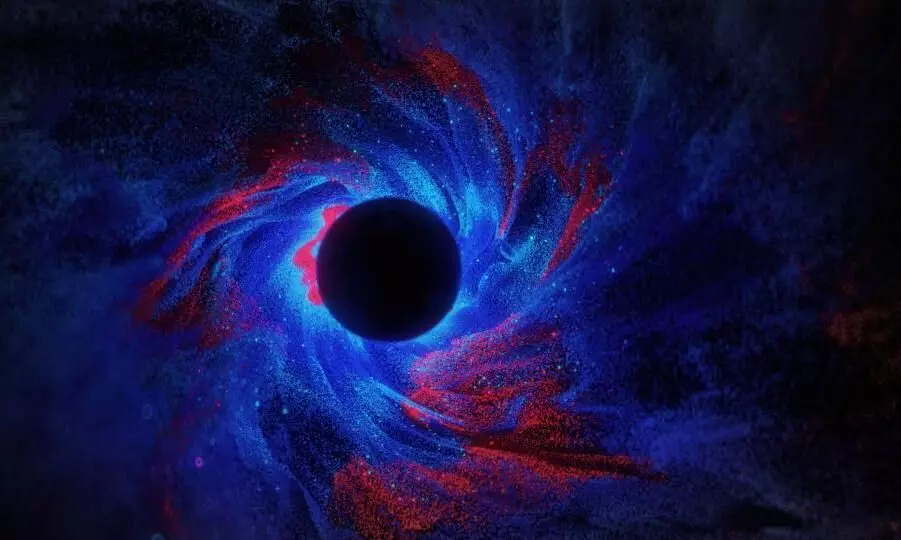
Scientists spot huge black hole emitting strong radiation to Earth
text_fieldsA group of international astronomers found out that a supermassive black hole is aiming towards the Earth from a galaxy that is 657 million light years away from the planet. The researchers have reclassified the galaxy, which is named PBC J2333.9-2343, NDTV reported.
Dr Lorena Hernandez-Garcia of the Royal Astronomical Society said that they started studying this galaxy as it showed peculiar properties. They have reached this hypothesis that the relativistic jet of the galaxy’s supermassive black hole has changed its direction. They ran a lot of observations to confirm it, she said.
According to the detailed study by them, the galaxy was initially classified as a radio galaxy, but they realised that it had rotated 90 degrees, and now its centre is pointing towards Earth. Thus to conclude that the galaxy is a “blazar”, meaning a galaxy point which has jet points pointing towards Earth. Blazars are very high-energy bodies, and they are one of the most powerful phenomena in the Universe.
Astronomers further said that the jet material originating from the black hole had created huge lobes on both two sides of the galaxy, and are noticeable when observed with radio waves.
Hernandez Garcia further said that since the nucleus is not feeding the lobes anymore, they are very old, which are relics of past activity. However, structures located next to the nucleus are younger and more active jets.
The study stated that researchers are yet to find what changed the direction of the galaxy. Some astronomers believe that PBC J2333.9-2343 collided with another galaxy, resulting in a change of direction.
It is also unclear how the direction change would affect our galaxy.























